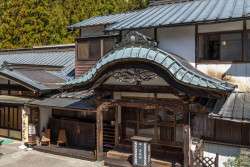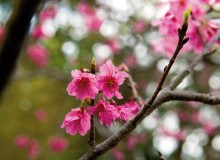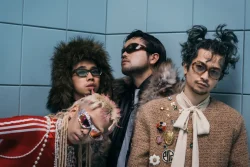
March 31, 2011
A Word on Wally
Remembering Wally Yonamine, the first American pro baseball player in Japan
By Metropolis
Originally published on metropolis.co.jp on March 2011

Phil Couzens
Being the first and being a pioneer are far from the same thing. And Wally Yonamine was a true sporting pioneer.
But that doesn’t mean Yonamine, who died of prostate cancer in Hawaii on February 28 at the age of 85, didn’t have a few “firsts” on his resume, too. Most prominently, the Hawaii native was the first man of Asian descent to play pro football when he joined the San Francisco 49ers as a running back in 1947. He later became the first American to play professional baseball in Japan after World War II when he was signed by the Yomiuri Giants in 1951.
To be a pioneer, you have to be successful. Hideo Nomo wasn’t the first Japanese to play Major League Baseball—that honor goes to Masanori Murakami, who pitched for the San Francisco Giants way back in 1964—but thanks to the success Nomo enjoyed with the Los Angeles Dodgers in 1995, he inspired a whole wave of Japanese players to pursue their dreams overseas. If Nomo hadn’t been named National League Rookie of the Year, or hadn’t led the league in strikeouts twice, or hadn’t thrown a pair of no-hitters, would players like Ichiro Suzuki, Hideki Matsui or Daisuke Matsuzaka have had the will and/or confidence to give it a shot?
Who knows, but had Nomo fallen flat, the paths of those who followed may have been that much bumpier.
By the same token, Yonamine’s success in the ’50s paved the way for over 900 foreign ballplayers to follow him to Japan. And, unlike the players of today with all the modern conveniences of communication and first-class travel to fall back on, it wasn’t an easy trail to blaze for the soft-spoken Hawaiian, whose family roots can be traced back to Okinawa. When Yonamine arrived in Tokyo, much of the country was still picking itself out of rubble, rebuilding from the destruction wrought by the war. Forget about air conditioning, high-speed travel and fancy hotel rooms—Japan, at that time, was not an easy place to live.
Yonamine didn’t speak the language and didn’t like the food. But he made sure never to seek special treatment—he was determined to be “one of the guys.” He would soon learn the language, though he never did get used to sushi. At the team mess hall, Yonamine would always make sure to sit near a window. That way, if he just couldn’t stomach something, he would discreetly toss it out when all eyes were averted, hoping to avoid offending his hosts.
As polite and unassuming as Yonamine was off the field, he was a terror on it. With his football mentality, he would bowl over opposing fielders as he broke up double plays—and a few legs, too. His aggressive baserunning style had not been seen here before. As effective as it was, opposing players and fans did not appreciate Yonamine’s “American” tactics. On one occasion, he was accosted by gangsters on the field in
Hiroshima who threatened his life; another time, he had large rocks thrown at him in the outfield in Osaka.
And through it all, Wally just kept on playing baseball, his way. His career batting average of .311 is still one of the highest ever in Nippon Professional Baseball, and he led his team to eight Central League titles. A seven-time All-Star, Yonamine topped the league in batting three times and was named CL MVP in 1957. He was also a base-stealing machine.
Yonamine’s crowning achievement was being inducted into the Japanese Baseball Hall of Fame in 1994. He was enshrined along with former teammate and baseball legend Sadaharu Oh, a man Yonamine inspired when he signed an autograph for a young Oh-san.
After his production had started to wane, Yonamine would be dropped from the Giants in 1960 after Tetsuharu Kawakami became the team’s manager. Prior to Yonamine’s arrival, Kawakami, known as the “God of Hitting,” had been the star of the Giants, and he didn’t take kindly to the bespectacled Yonamine stealing his thunder. Years later, when Yonamine was managing the Chunichi Dragons, he would get a measure of revenge on the nationalistic Kawakami. In 1974, the mighty Giants’ run of nine straight CL titles with Kawakami at the helm came to an abrupt end when Yonamine’s Dragons captured the pennant.
Rest in peace, Wally.







